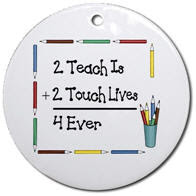I've had the luck of working with our phenomenal reading teacher for two years now. She and I have co-taught reading, writing, and word study for two and a half hours a day. It has been the greatest learning experience of my career and more fun than one deserves to have at work. However, it will soon come to an end. She will move on to another classroom next year and I will go through severe
withdrawal.
One of the things that I think has gone exceptionally well during these two years has been our text type units. I need to review them for myself in the hopes that I will remember how to do it on my own next year. We've taught our students how to write personal narratives, essays, and reports. We spend about one quarter on each unit. The first quarter we focus on writer's notebooks and the writing process.
At the beginning of a unit we immerse the students in the text type. We read aloud or do shared readings of multiple examples of the text type. After reading many we guide the students in developing a list of characteristics of the texts we have read (we still may not have named the text type). After creating a comprehensive, or at least significant, list we write one together as a class. This may take a couple of weeks. We plan, draft, revise, and edit it together.
The next step is a
preassessment. Students spend one or two days writing their own text without any support from teachers. From these examples we are able to determine what areas of focus we need for the unit (leads, organization, homonyms, voice, paragraphing, etc.) It takes several days to really look over their
preassessments, so during that time we do some writer's notebook lessons that support the text type (maybe interviews or
notetaking ideas for reports, for example).
Finally, we begin teaching focus lessons to help students become better writers of the current text type. These lessons are based on our notes from their
preassessments. Some lessons are for the entire class, other items are focused on guided writing groups of a few students, and some things are addressed through individual writing conferences. During this time students are independently writing about anything they wish.
Near the end of our focus lessons students being working on their "big game" text (thank you, phenomenal reading teacher!). In this text they should be considering all of the things we have been working on during the unit. For this text we will conference with them for revisions and edits and anything else they need. A date will be set for final completion (many finish early) and a date for a writing share with another class.
There are still some areas in which I want to improve my instruction during these text type units. One piece that is a challenge for me is sending students to look at mentor texts. I need to be sure that I have a plethora of examples and that students understand how to turn to mentor texts to help them improve their writing. It would also be beneficial to determine a way to streamline the shared writing of our example. It is a very important piece, but hugely time consuming. Next year will be challenging as I attempt to do all of this on my own. Fortunately, I've had the best teacher and learning experience possible.







